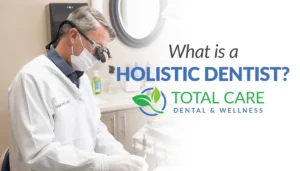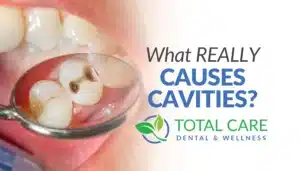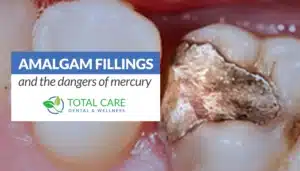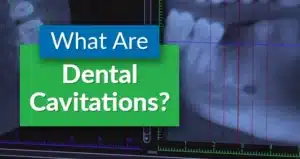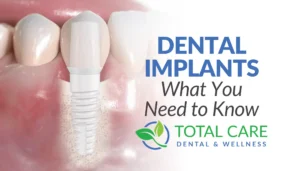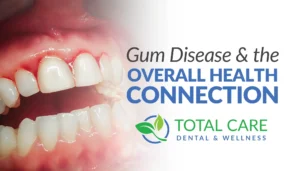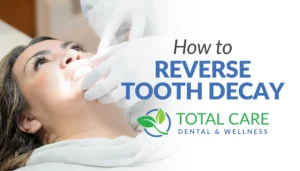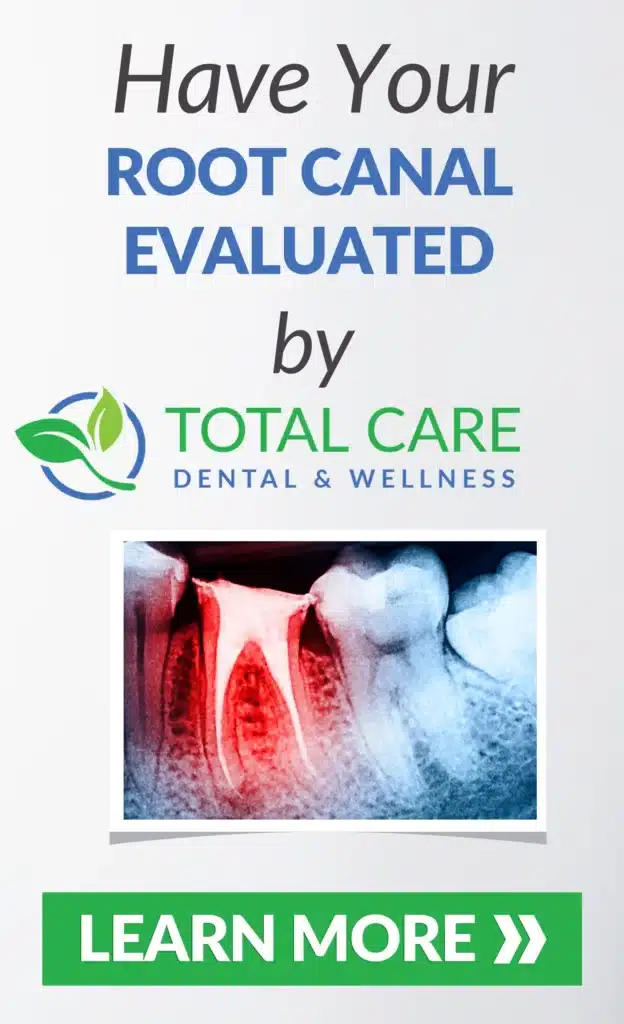05
Are Root Canals Bad For You?
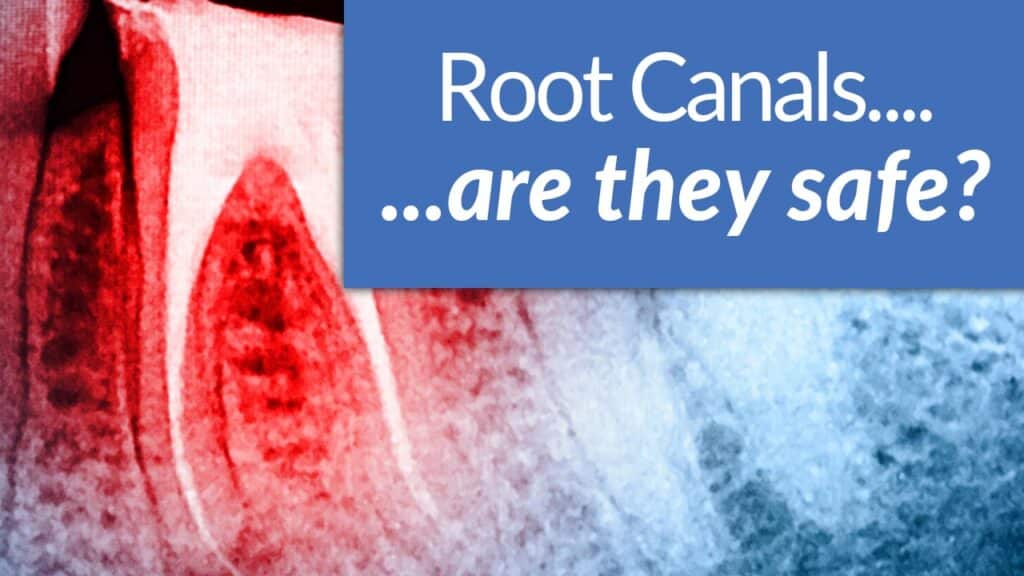
Are Root Canals Bad For You? This is a loaded question with an even more complicated answer. In this chapter, I’ll go into detail about when a root canal might be a good option and when you should avoid it.
What Are Root Canals?
A root canal procedure is a dental treatment designed to preserve a badly decayed, broken or infected tooth and infected pulp. This is done by removing the tissue, nerves and blood vessels in the inside of the tooth and filling in the space with a rubber-like material called gutta-percha. This tooth is then often covered with a crown or onlay for strength.
After a tooth has become irreversibly inflamed or infected and it has begun to die, you essentially have two options for treating the tooth:
Option #1 – Remove the Tooth and Replace it if desired.
Option #2–Have a Root Canal procedure on the tooth- described above
The Origins of the Root Canal Therapy
In the 1800s when modern dentistry was in its infancy, dentists and their patients were frustrated because so many teeth had to be pulled due to tooth pain. They experimented with removing the infected and dead nerve tissue, rinsing and disinfecting the inside of the tooth, and filling it.
The techniques and materials have evolved, and today more than 22 million root canals are performed every year in the US alone.
Why is that?
To “save” teeth that have been neglected or damaged.
When a tooth receives a root canal the tooth is no longer technically alive—but the tooth (without the nerve) is retained in the jaw bone to continue functioning as a tooth.
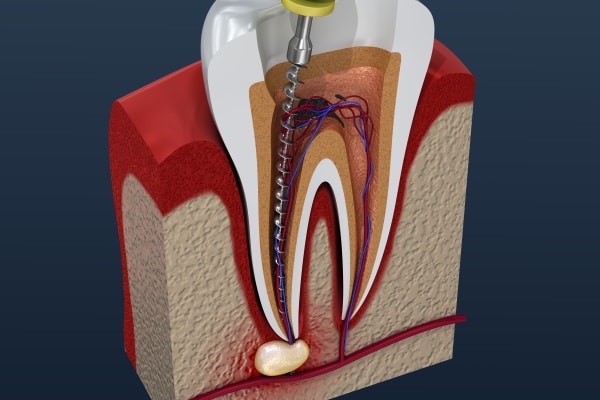
The Problem With Root Canal Procedures and Why They Can Be Bad for Your Health
Dentists are usually quite successful in cleaning out the main root canal area and disinfecting it. In fact, in most cases, even the infected bone at the end of the root will heal and new bone grows in its place after the procedure. If so, what is the problem with root canal therapy?
In one word: the dentin. Think of dentin as the highway system of the tooth. It is made up of miles of tubules, all filled with a lymph-like fluid. Each of those tubules opens into the center nerve chamber in the tooth.
The bacteria that cause tooth decay travel through those dentin tubules to get from the outside to the inside of the tooth to infect the nerve.
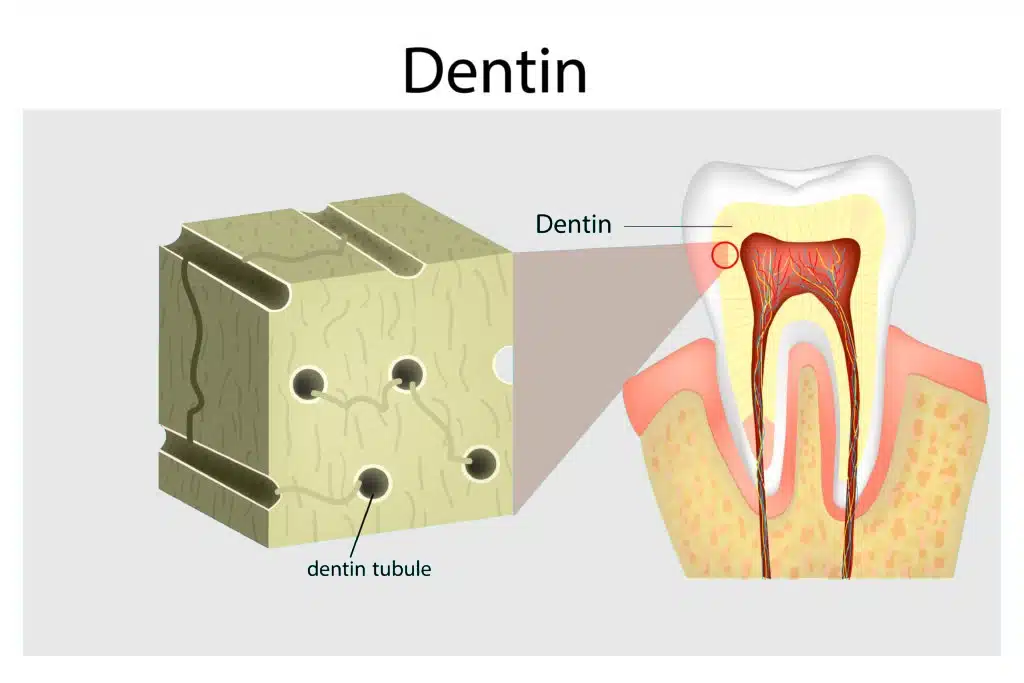
The medications used to sterilize a tooth are very effective at cleaning the main root canal area, but not the tubules. There are simply too many of them. Once the root is filled, the fluid that fills those tubules and the bacteria they contain back up like a clogged sewer on a busy street.
The tubules are a nice place for the harmful bacteria to hide, and your immune system or any antibiotic can’t get to them because the flushing system in the tooth has been removed.
Those trapped bacteria have to adapt to living with no oxygen, and these new “anaerobic” (without oxygen) bacteria create waste products called endotoxins. Endotoxins freely circulate in the bloodstream and around the end of the tooth, causing the bone around the tooth to become very unhealthy. Eventually, this even affects your jawbone and your body at large.
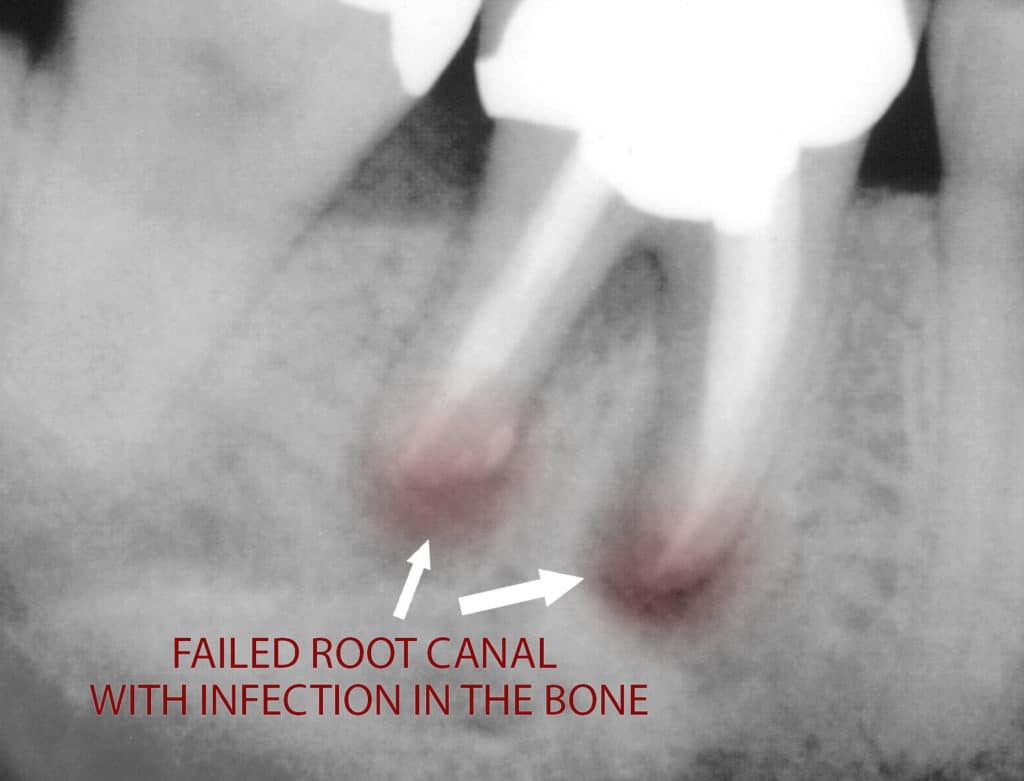
At some point, you’ll start to notice the symptoms (sickness, fatigue, chronic illness, autoimmune disease) kick into gear. That’s because your immune system has been put on constant alert by these endotoxins. Eventually, your immune system wears out from working overtime, letting the bad bacteria take over.
Why Dentists Don't Know That Root Canal Therapy Can Be Bad For Your Health
Any dental student or dentist with a traditional education can tell you where a root canal can go wrong. Every dentist is taught how to best avoid the problems—but most dentists don’t know why they are taught that.
It’s because there are SO MANY potential areas of failure in even the most “routine” root canal therapy, making the idea of a ‘perfect’ procedure almost unobtainable.
Here are just a few of the potential areas of failure:
Harmful bacteria remaining in the root
Leaking of the root canal filling material
The filling material ends up too short or too long for the root
Leaking fillings or crowns on top of the root canal tooth
Instruments breaking inside the root during the procedure
Completely missing one or more of the canals when cleaning out the root causing infection to remain
Whew… that’s a lot of things to do perfectly every time, reducing the chance that every root canal will be perfect.
The odds are stacked against long-term success with root canal treatment, and indeed, studies are showing that failures do occur at some point in the life span of the root-filled teeth.
Can You Have Successful Root Canal Treatment?
This is where things get sticky.
Traditional dentists will usually recommend a root canal for infected or dead teeth, and if that root canal shows infection building up again (from those bacteria that always remain in the dentin tubules), they recommend redoing the root canal treatment or completing a surgical root canal (called an apicoectomy).
I myself have performed hundreds of root canal treatments in my career, but I no longer offer or perform the procedure.
In fact, I rarely see an old root canal that doesn’t have a new infection somewhere along the root.
I see so much infection and disease in my visits with new patients that I can no longer, in good conscience, offer that procedure myself.
I still tell my patients about the root canal option, as I am required to do so by law, but if they choose a root canal over tooth extraction, I refer them to a root canal specialist (an endodontist) for the procedure.
So, Do Successful Root Canals Ever Happen?
Let’s answer this with another question: What is the key to a successful root canal treatment?
The answer . . . the health of the person getting the root canal treatment!
People with strong immune systems and no strong genealogical history of chronic degenerative disease can possibly have and retain successful root canalled teeth for some period of time.
Here’s the catch twenty-two—When the immune system of even the healthiest person becomes overstressed, it will start to drop the ball on a few things—and those trapped bacteria around the end of the root may multiply and start causing problems.
A healthy person with a root canal treatments may not stay healthy.
I was faced with this very personal situation a few years ago with my 11-year-old son. While warming up for an All-Stars baseball game, he got hit in the mouth with a baseball. He came around the corner spitting out teeth, and my heart just sank—I knew what he was in for.
One of his front teeth came out and was not salvageable, and the other front tooth was fractured 1/2 way down the root but didn’t come out.

My choice was:
Do a root canal to save the tooth for now or…
Take out both of my son’s permanent front teeth.
It makes me sick to my stomach to think about it even years later!
I chose to do a root canal. And in his situation, with a fractured root, I 100% knew his root canal would one day leak and fail.
Why did I make this choice?
He was very healthy, in the middle of a big growth spurt, and I could keep an eye on his health and the tooth.
His body was able to handle the root canal for a few years until he had grown enough, and when he was in his twenties I had to extract the teeth and place dental implants. The teeth with root canals had all failed as predicted and had infections, but luckily they lasted long enough until he could get his dental implants.
I view root canals as temporary solutions.
They help retain the tooth in the mouth, keep the space, and buy time for the patient to stop growing or find a better solution. However, there is always a risk of negatively affected health while the tooth is in the mouth.
Recommendations For Long-Term Health And Wellness
There is not a hard-and-fast answer to the root canal controversy, but from what I’ve observed with thousands of patients, I’ve come up with some recommendations.
- If you are in the 10-30% category of people with a healthy immune system and no family history of degenerative diseases like diabetes, arthritis, heart disease or cancer, you have a statistically higher chance for a successful root canal right now. You may get 5, 10, even 15 years more with that tooth.
- If you are in the 70-90% category of people with some immune problems, any existing degenerative diseases (arthritis, heart problems, diabetes, etc) or a family history of degenerative diseases, you have a statistically lower chance for a successful root canal. You may wish to extract the tooth rather than pay for a root canal and have it fail and negatively affect your health.
- If you have an existing root canal and have had nagging, unexplained medical problems, or progressive degenerative diseases or immune problems, your root canal may be contributing to your health problems.
- If you have an existing root canal and are in good health, AND if the tooth appears healthy and uninfected on a diagnostic x-ray (CT scan is the only method to view this), you may choose to leave the tooth there for now.
One Warning: Any good holistic dentist will let you know that the removal of a root canal tooth may not fully alleviate the illness you feel has been caused by that tooth. There are often multiple “foundational problems” that contribute to your illness or disease – the root canal being one.
If enough of these foundational problems are removed, the body is able to heal. Improving nutrition, correcting stomach acid, and rebuilding your energy systems are all important pieces that your holistic dentist should keep in mind as they consult with you.
The best root canal is no root canal at all.
Except in trauma situations like my son’s, most root canals can be avoided with proper care and nutrition. Please read the chapters on Protecting Teeth Through Nutrition.
What Can You Do if You Already Have a Root Canal Tooth?
Option #1 – Have it removed.
Many people don’t like this option, but they like the health improvement tooth extraction brings! It’s never convenient to go without teeth or wear temporary appliances while waiting to have them replaced with dental implants. Dentists also don’t like removing them. Dentists are trained to save teeth, and root canal teeth often have lost the ligament surrounding them and are difficult to remove. (These are two reasons most dentists recommend root canals first.)
Despite this difficulty, I am recommending removing teeth on a greater number of patients than ever before.
I used to recommend saving a tooth at any cost – now I recommend saving health at any cost, even if it means losing a tooth.
There are great replacement options now with metal-free zirconia implants. Keep your long-term health in mind when making your decision.
Option #2 – Keep it healthy.
There are two additional things you can do to prolong the life of the root canal tooth.
Replace the metal-containing crown or filling on the root canal tooth. If you have a metal filling or crown or porcelain crown with a metal core (called a PFM), you have a small battery in your mouth. All these metal fillings or crowns create a small electric current in saliva. If you have felt like you are “chewing on tin foil”—that’s the current I’m talking about. It’s called galvanism.
Bacteria love this small current and they flourish when it’s there. If you have a metal filling or metal-containing crown on the tooth with a root canal, you’ve created the perfect storm.The metals are attracting bacteria and the bacteria are re-infecting the root canal. Solution–have the metal filling or PRM crown replaced with porcelain.
Keep your immune system healthy. You can add Vitamin D3 and Vitamin K2 to keep your immune system, teeth, bones and mouth healthy. You can also swish with a silver containing mouth rinse to maintain mouth health.


